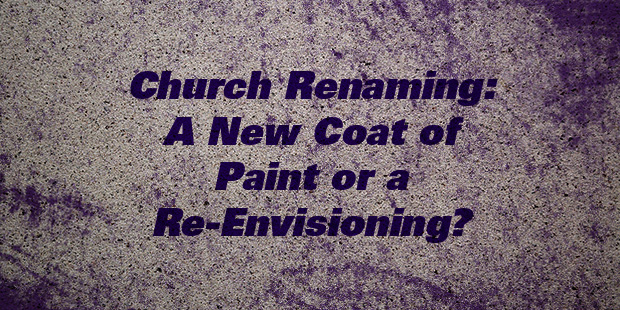I was having coffee with a fellow pastor who needed more than caffeine to pick himself up. Summer attendance was down. Key people were leaving because of disagreements about the direction of the church. And money was very, very tight.
I felt nothing but empathy. Yep, been there, felt that.
“Jim,” he said, “I knew seasons like this would come. I just didn’t know how stressful they would be.”
Neither did I. To this day, the disappointments can still blindside me. Nothing prepares you for how ministry can drain you emotionally, leaving you in pain or, even worse, feeling numb or in despair or with seething anger. This is why so many good men and women in ministry have careened into moral ditches and many more still soldier on with plastic smiles and burned-out souls.
A few years ago, my wife Susan and I were part of a mentoring retreat with about a dozen couples, all well-known leaders of large and thriving churches. We started off with an open-ended question: “What are your key issues right now?”
As we went around the room, the recurring answer in each of their lives was “emotional survival.” We shared our stories about the hits and hurts that come our way in ministry as occupational hazards and how they tear away at our souls, sapping our enthusiasm, our creativity, and our missional stamina. They leave us dreaming of finding ourselves on a beach with a parasol in our drink – permanently.
So how do you manage your emotional survival?
First, the bad news. There’s not a quick fix. Ministry is just flat-out tough and often emotionally draining. You won’t ever escape the hits and the hurts. They come with the territory.
Now, the good news. You can develop a way of life that protects, strengthens and replenishes you emotionally. You can cultivate a set of activities and choices that allow God to restore your soul. Some things are obvious like regular days off and annual study breaks if you can get them. And you’ll need to get a lot more savvy about people and how to deal with them.
So here are two choices I wish I had made much earlier in my life. They may seem far removed from what caused the emotional hit in the first place, but they are key to ensuring you have a full emotional tank and can keep putting gas into it for the long haul.
Clear boundaries regarding giftedness.
First, how you serve is critical. Ministry is tough enough. But if you consistently serve outside of your primary areas of giftedness, you won’t last very long under the stress and strain that comes with the territory. I really don’t hear this talked about very much, if at all. But there’s something about large amounts of time spent serving against the grain of your natural gifting that saps your emotional and spiritual energy.
I’ve had to learn to be very up front with folks about my areas of giftedness, and how those gifts are supposed to operate in the mix with other people’s gifts in the body. That’s because what happens in a church, even one where spiritual gifts are taught and celebrated, is that the pastor is still expected to have them all – and to operate in them all. The danger is that you’ll let yourself try, and soon you’ll be wiped out with little or no reserves for the daily toil.
Related to this is operating outside of your personality type. A surprising number of pastors are, ironically, introverts. It’s not that they don’t love people or aren’t good with people – most are even charismatic in terms of their leadership and speaking ability – but they are, in fact, introverts in terms of emotional makeup. As a result, many pastors get their emotional energy from being alone. If such realities are not acknowledged and managed, you will find yourself emotionally spent and soon burned-out.
So yes, even as a pastor, you need to guard how you serve.
Emotionally replenishing experiences.
Second, I’ve had to learn to intentionally pursue emotionally replenishing experiences. When you hurt, if you don’t find something God-honoring to fill your tank with, you’ll find something that isn’t God-honoring. Or at the very least, you’ll be vulnerable to something that isn’t. I am convinced this is why so many pastors struggle with pornography – it offers a quick emotional hit.
To prevent that, I’ve had to learn to do things that channel deep emotional joy into my life. For some folks it’s boating, or golf, or gardening. For me, it’s travel, reading, time alone with family, and enjoying anything outdoors – particularly the mountains.
Several years ago, a man I had invited into my life in a mentoring relationship asked, “Jim, what do you do that really puts gas back into your tank? If you could do one thing that would rejuvenate you spiritually and emotionally, what would it be?”
I didn’t have to think very long, or hard. I knew the answer: “I would go to the mountains and be alone.”
For as long as I can remember, the mountains have held significance for my spirit and emotions that I cannot explain. Being there alone is particularly rich, as I gain my deepest emotional energies apart from others.
He said, “Good. You should do that once a month.”
I laughed. “You’ve got to be kidding. Once a month? The mountains? I don’t have the time! My life is too busy, too full, to put something like that into my schedule.”
Then he said something I will never forget. “If you don’t, you will end up in a ditch. You will burn out, lose your ministry, perhaps even your family, and become a casualty of the cause.”
I knew he was right. I was already seeing the edges of my life fraying, and knew how easily my world could unravel.
I went to the mountains.
My first trip found me staying in a budget hotel, just overnight, in the heart of the Blue Ridge Mountains. I remember it to this day. It was like water on a dry desert. I felt energy and emotional renewal flowing into the deepest recesses of my inner being. I came home walking on air. I entered our foyer, hugged my kids, and kissed my wife. She thought I had been drinking.
I had – from the well of emotional renewal which God intends for all of us to take deep draughts of living water.
Now I escape to the mountains to a little bed-and-breakfast monthly. Every month I leave on a Thursday afternoon, and as I drive toward the cool air and clear skies, I feel the weight of the world fall off my shoulders. I feast off of it for weeks. Four, to be exact, when I venture to my precious emotional retreat once again.
On the front-end I would have told you that it was impossible to put this into my life. Looking back, I will tell you that it is unthinkable not to have it.
So here’s my question for you:
If you could do one thing that would rejuvenate you emotionally, what would it be?
Now here’s my challenge:
For your sake, and your ministry’s, do it.
> Read more from James.

Tags: Choices, Emotional Health, Emotional Survival, James Emery White
|
What is MyVisionRoom? > | Back to Execution >


























